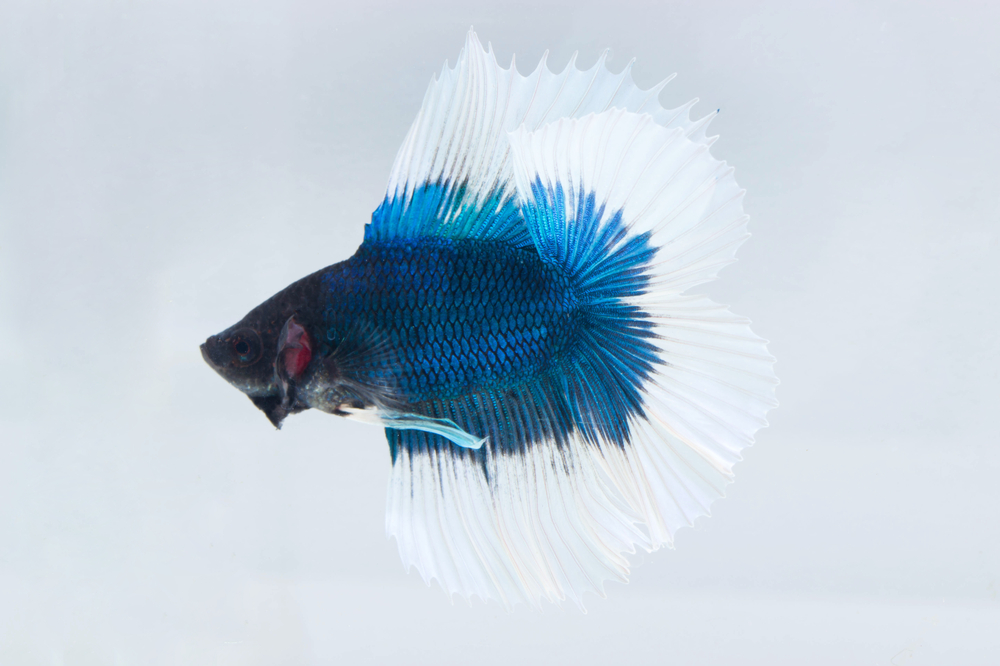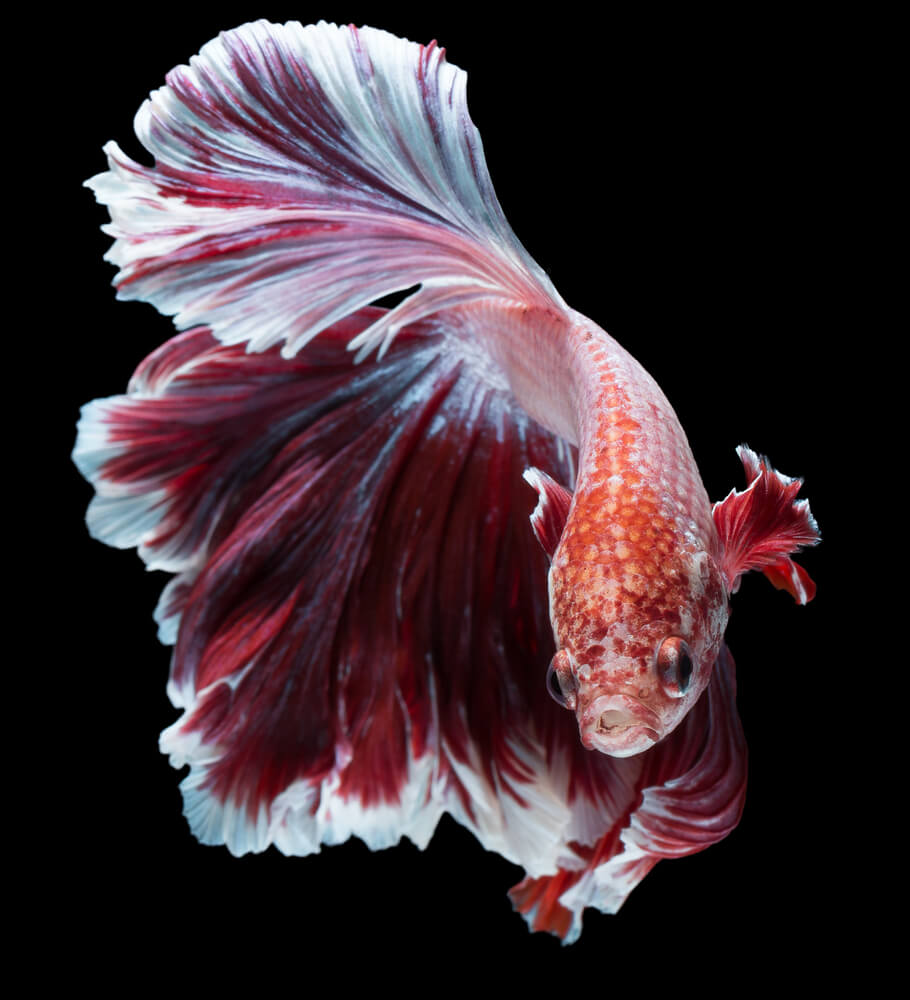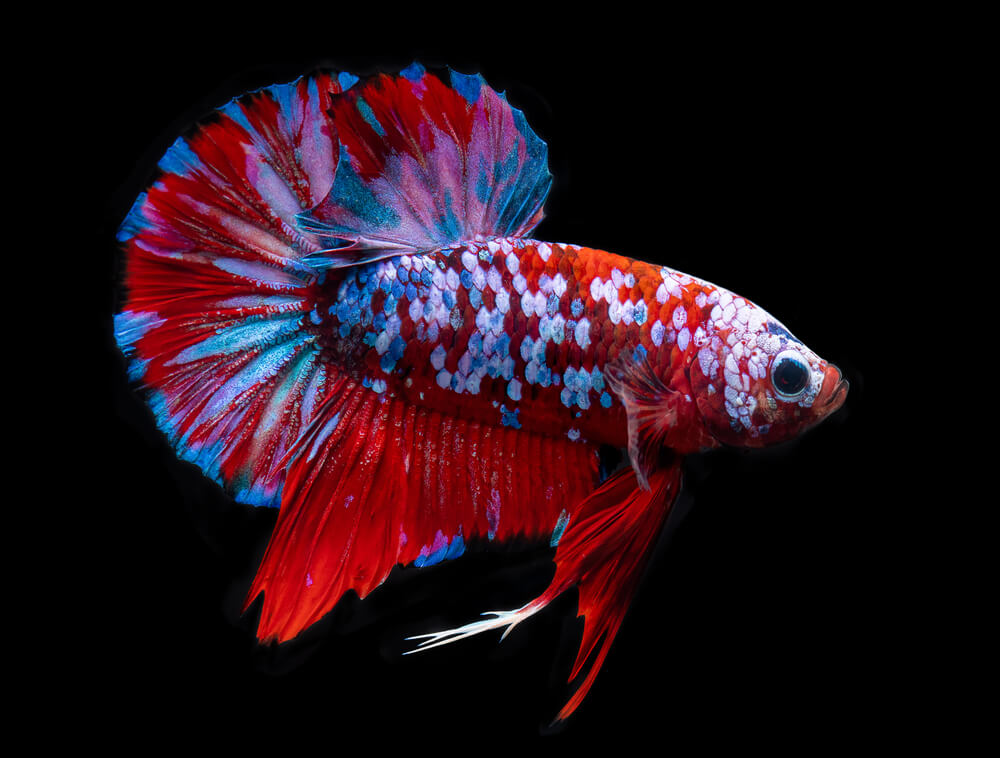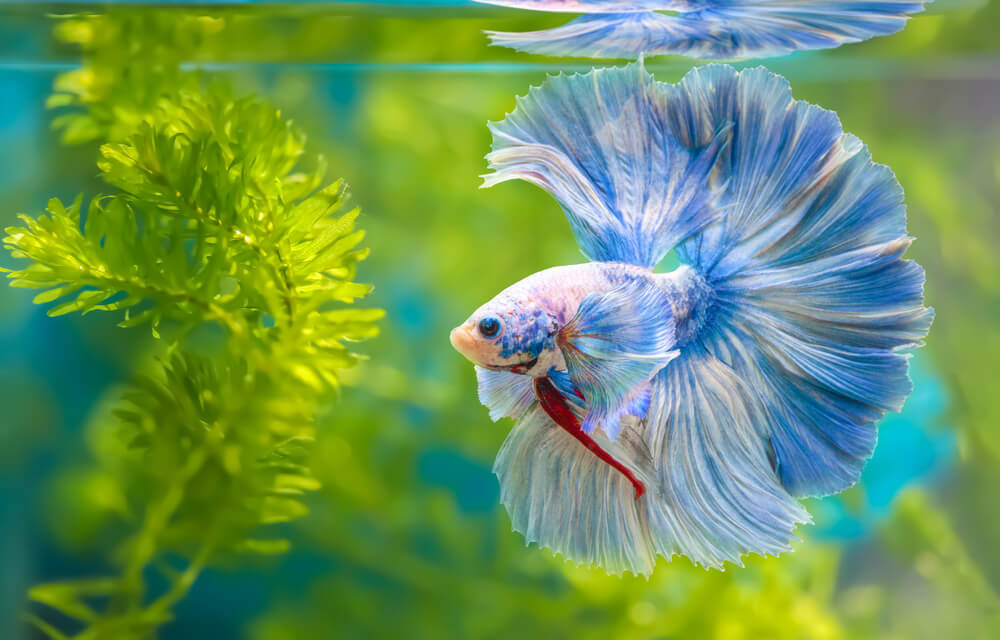Have you ever wondered if betta fish have teeth? These vibrant, exotic-looking creatures are popular pets in many households. But do they really possess the same dental anatomy as humans and other mammals?
In this article, we’ll explore what science has to say about whether betta fish have teeth or not. We all know how important it is to take care of our pearly whites. It’s just as important for us to understand the oral health needs of our beloved aquatic friends too!
By understanding more about their dental anatomy, we can ensure that our betta pals stay healthy and happy for years to come. Let’s dive into the world of betta dentistry together and get to the bottom of this question: Do betta fish have teeth?

Anatomy Of A Betta Fish
Betta fish are a unique and fascinating species of freshwater fish known for their vibrant colors. Though smaller than most typical aquarium fish, the betta packs a big punch when it comes to personality!
Not only do they have an incredibly long lifespan – some individuals can live up to five years or more – but they also possess physical features that make them extremely interesting creatures. One such feature is their teeth: yes, betta fish actually do have teeth!
Though much less pronounced than those of humans, bettas still possess prominent rows of small, sharp-edged teeth located at the front of the jawline. These tiny chompers assist in breaking down food items like insects and crustaceans, helping bettas get the nutrition they need for survival.
Additionally, these teeth are used by males during courtship rituals as part of displays meant to attract potential mates. In addition to having impressive jaws and teeth, betta fish also boast beautiful fins which come in every color imaginable.
As with other members of the labyrinth family (a special group of air-breathing fishes), male bettas have larger tails and longer fins than females. This difference allows males to showcase a full array of colorful patterns while competing for breeding rights—all without ever leaving the water’s surface!
Betta Fish Digestive System
Betta fish have a unique digestive system that is well adapted to their carnivorous lifestyle.
Their long and slender body allows them to consume large prey in one go, while their stomachs can expand up to 30 times its normal size to accommodate the meal.
To help break down the food they eat, betta fish are equipped with rows of small teeth along both sides of their mouth. These tiny but sharp structures shred prey into smaller pieces so it can be digested more easily.
The process begins when betta fish swallow food whole using movements from their gills and fins as propulsion. The swallowed food then travels through the esophagus before entering the stomach where hydrochloric acid helps break it down further for easier absorption by the intestines.
After being broken down into its component parts, nutrients are absorbed into the bloodstream via millions of microscopic villi lining the walls of the intestine – allowing betta fish to get all the energy and nourishment they need from their diet.
Thanks to this efficient digestive system, betta fish can quickly gain energy from even small meals, allowing them to stay active throughout most of their waking hours and live healthy lives in captivity or in natural habitats.

Oral Cavity Of The Betta Fish
The oral cavity of the betta fish is an intriguing area to explore. The most noticeable feature within this region is that it contains no teeth!
A few other interesting points about what lies inside a betta’s mouth are as follows:
- It has two sets of gill openings – one on each side, which help them breathe underwater.
- Inside its mouth lies a specialized organ called the ‘pharyngeal jaw’ – these jaws have sharp edges and can be used like teeth for crushing food items such as snails or worms.
- Betta fish also possess something called papilla glands – these structures secrete mucus-like substances that help lubricate the throat during swallowing and digestion processes.
Although bettas lack actual teeth, they still benefit from their pharyngeal jaw and papilla gland systems in order to process meals efficiently while navigating complex underwater environments with ease. It’s fascinating how nature provides us with helpful adaptations even when we expect none!

Are Betta Fish Born With Teeth?
As the age-old adage goes, what good is a fish without teeth? Well, we may never know.
Betta fish are here to prove that you don’t need chompers to get by in life! That’s right – these little underwater creatures were born with something even better than teeth: an indomitable spirit and ‘can do’ attitude!
Betta fish didn’t let their lack of dental equipment keep them down – they persevered through hard times and made it out alive (and unscathed!)
And while other aquatic animals might have given up at this point, Betta Fish kept on swimming; proving time and time again that despite not having any choppers, they could still make waves.
These resilient critters show us all that ambition isn’t tied to physical features or capabilities – if you put your mind to it, nothing can stop you from achieving great things.
So take inspiration from our toothless friends and go out there and pursue greatness! Who knows – maybe one day you too will be able to overcome obstacles without so much as a single tooth.
Do Betta Fish Have Teeth?
In the last section, we discussed whether betta fish are born with teeth. Now let us explore if these fish have any teeth at all.
It is quite astonishing that even though betta fish appear so small and delicate, they actually do possess a set of teeth! These teeth are found in the form of tiny pegs located on their jawbone which act as tooth roots. While it may seem difficult to identify them due to their minuscule size, they can be easily spotted when looking closely into the mouth of a betta fish.
These peg-like structures not only help bettas eat food but also assist them in catching prey such as small insects or other aquatic organisms. The sharpness of these “teeth” helps them chew food more efficiently while preventing larger pieces from slipping away. Betta’s diet mainly consists of live foods like worms, brine shrimp, daphnia, etc., and their powerful jaws allow them to rip apart chunks of meat without much effort.
Moreover, there have been cases where these fishes have even eaten smaller invertebrates that come too close to their mouths! Bettas are incredibly resilient creatures who have adapted over time to survive in various environments by developing unique features – one such feature being the presence of teeth! They play an important role in helping them feed themselves and protect themselves from predators.
All in all, this interesting adaptation renders bettas capable of leading a successful life both inside and outside the aquariums we provide for them.

The Importance Of Good Oral Hygiene For Betta Fish
It is often said that caring for betta fish is like taking care of a small, shining jewel. Just as with humans, oral health must be given special consideration when it comes to these beautiful creatures. Proper maintenance and hygiene of the mouth can help ward off infection and disease in betta fish, so understanding how to do this correctly is essential for all owners.
The most important part of keeping your betta’s mouth healthy has nothing to do with teeth – they don’t actually have any! Instead, their mouths contain thin layers of tissue, which are designed to aid in eating but require much more gentler cleaning than one would expect from an animal possessing traditional sharp choppers. This means that harsh brushes or other abrasive cleaners should never be used within the tight confines of the fish’s mouth.
Fortunately, there are plenty of ways you can keep your pet’s oral hygiene up-to-date without resorting to anything too aggressive. First and foremost, make sure your tank water remains clean at all times; contaminants such as chlorine or ammonia can irritate delicate gill tissues and cause infections if left unchecked.
Additionally, regularly feed them high quality food pellets specifically formulated for their species – not only will this provide them with vital nutrition but also help scrape away plaque build-up along their jawline. By following these simple steps, you can ensure that your precious betta remains happy and healthy throughout its lifetime!
How To Clean Your Betta Fish’s Teeth
The importance of good oral hygiene for betta fish is undeniable. Not only does proper care help keep these beautiful creatures healthy and vibrant, but it also ensures that they look their best in your aquarium or tank. But how exactly do you clean your betta fish’s teeth?
It may come as a surprise to some that betta fish have teeth! Though small, the tiny chompers are located on the underside of the lower jaw and can be seen when inspecting closely. Therefore, cleaning your betta’s teeth should be done with caution so as not to cause any injury.
A diet rich in phosphorus-containing foods (such as brine shrimp) helps promote strong teeth development and maintenance over time. It’s always best to consult with a vet prior to making major changes like this one however, just to make sure it won’t negatively affect other areas of your pet’s health such as digestion or overall wellbeing.
Regularly maintaining your betta fish’s dental hygiene will go a long way towards keeping them healthy and happy – something they deserve after being welcomed into our homes!
With just a few simple steps, you can ensure your betta fish enjoy optimal oral health! Regularly check for signs of discoloration or inflammation around the mouth area, and make sure to address any issues quickly before they turn into bigger problems down the road. As long as you stay attentive to your pet’s needs, they should remain healthy and happy for years to come!

Conclusion
In conclusion, it is important to understand that betta fish do indeed have teeth.
Although they are not born with these structures, the presence of small projections in their oral cavity make up for what we call “teeth”.
It is essential to maintain your pet’s dental hygiene in order to promote a healthy environment for them to live and thrive in.
Doing so will ensure your little buddy lives the happiest life possible! Coincidentally, just like us humans, taking good care of our own dental health plays an equally important role in ensuring our overall wellbeing too!
So don’t forget – take care of yourself as well as your betta fish’s teeth!
